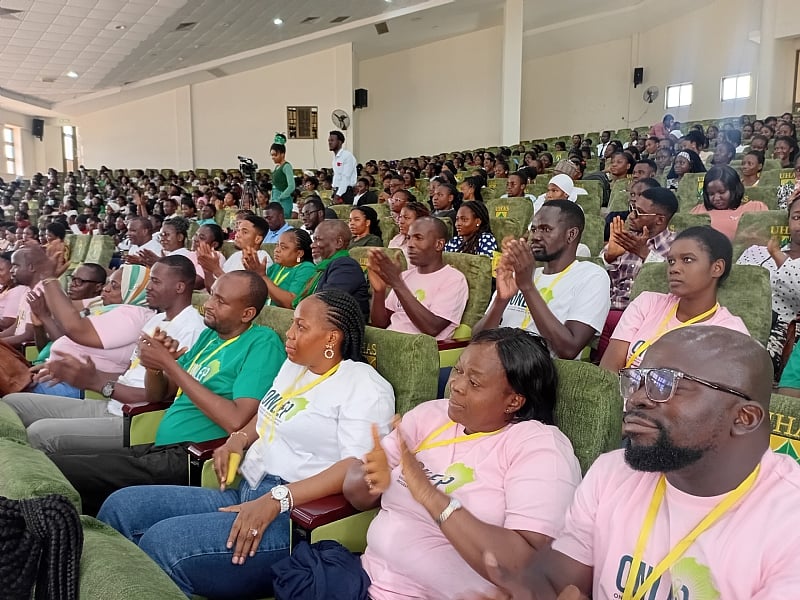The Oncology Nurse Leadership Programme (ONLEP), a pioneering initiative in Africa, has been launched at the University of Health and Allied Sciences (UHAS) in Ghana. This five-year program, a collaborative effort between UHAS, the International Society of Nurses in Cancer Care (ISNCC), City Cancer Challenge Foundation (C/Can), and Amgen, aims to transform cancer care across the continent by empowering nurses with essential leadership, clinical, and advocacy skills. The program’s curriculum encompasses a wide range of modules, from psycho-oncology and financial management to quality assurance and advocacy, culminating in a postgraduate certificate recognized both within Africa and globally. The first cohort, comprising 30 nurses from seven African nations, has embarked on their training journey, starting with a two-week in-person session at UHAS followed by six months of online learning. The ONLEP represents a significant step towards building a robust and skilled oncology nursing workforce capable of meeting the rising cancer care demands across Africa.
The launch of ONLEP comes at a crucial juncture, as cancer cases continue to rise across Africa, placing a significant strain on existing healthcare systems. In Ghana alone, over 27,000 new cancer cases were recorded in 2022, resulting in nearly 18,000 deaths. This stark reality underscores the urgent need for skilled healthcare professionals, particularly in oncology. The ONLEP addresses this need by equipping nurses with the necessary skills to not only provide clinical care but also to act as advocates for improved cancer care services and to lead initiatives aimed at enhancing patient outcomes. The program’s focus on leadership development aims to empower nurses to become agents of change within their respective healthcare systems,推动创新 and driving improvements in cancer care delivery.
The collaborative nature of ONLEP contributes significantly to its potential impact. The partnership between UHAS, a leading health sciences university, and international organizations like ISNCC, C/Can, and Amgen brings together a wealth of expertise and resources, ensuring a high-quality training program that meets international standards. The program is further strengthened by the support of the Ghanaian government, which recognizes the importance of investing in human capital within the healthcare sector. The alignment of ONLEP with Ghana’s national health priorities, including expanding access to cancer treatment and strengthening health systems, demonstrates the government’s commitment to improving cancer care outcomes.
The ONLEP is structured to provide comprehensive training to 240 nurses over five years, with an escalating intake each year. This phased approach allows for effective monitoring and evaluation of the program’s impact, ensuring continuous improvement and adaptation to evolving needs. The program’s curriculum goes beyond clinical skills, incorporating vital aspects such as psychosocial care, financial management, and leadership development. Participants are expected to complete a leadership project, demonstrating their ability to apply their newfound skills in practical settings. This focus on practical application ensures that graduates are well-equipped to lead and implement changes in their respective workplaces, directly contributing to improved cancer care services.
A critical aspect of the ONLEP is its focus on psychosocial care, an often neglected area in cancer treatment, particularly in resource-constrained settings. The program recognizes the significant emotional and psychological toll cancer takes on patients and their families and equips nurses with the skills to provide holistic support. This inclusion of psychosocial care is vital in ensuring that patients receive comprehensive care that addresses not only their physical needs but also their emotional and mental well-being. This holistic approach to cancer care is crucial for improving patient outcomes and quality of life.
The ONLEP represents a beacon of hope in the fight against cancer in Africa. By empowering nurses with leadership, clinical, and advocacy skills, the program is creating a cadre of healthcare professionals capable of driving transformative change in cancer care. This initiative not only addresses the urgent need for skilled oncology nurses but also fosters a sense of community among these healthcare professionals, enabling them to share experiences, learn from each other, and collectively work towards improving cancer care outcomes across the continent. The ONLEP is a testament to the power of collaboration and the crucial role of nurses in leading the charge against cancer. Its long-term impact promises to be significant, shaping the future of cancer care in Africa and beyond.














